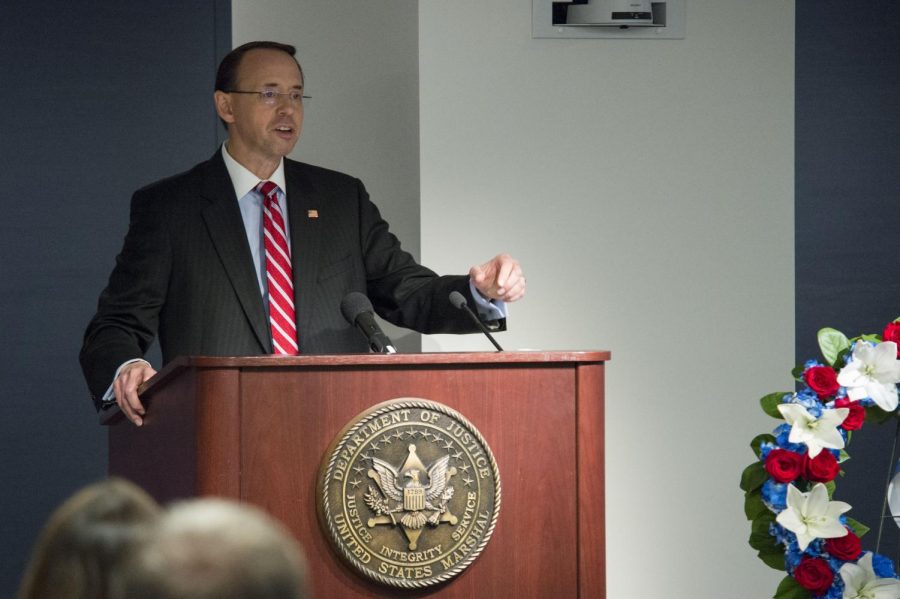Outside Iona
May 4, 2019
What’s been happening in the news since the last issue of the Ionian?
- Rod Rosenstein resigns
Deputy Attorney General Rod Rosenstein submitted his letter of resignation on April 29. His resignation is effective May 11. Rosenstein was appointed to deputy attorney general under Jeff Sessions, and took over supervision of the investigation in Russian meddling in the 2016 election after Sessions recused himself. Rosenstein hired special counsel Robert Mueller to head the investigation. Rosenstein read the “Mueller Report” and helped make redactions with current attorney general William Barr.
Rosenstein’s resignation comes on the heels of The Washington Post reporting that he had assured the president in a phone call last year that the special counsel’s investigation would treat him fairly. It has also been reported that Rosenstein planned on resigning earlier in April, but decided to stay until the end of the Russia investigation.
Current Deputy Transportation Secretary Jeffery Rosen is in the process of being confirmed as the new deputy attorney general.
Information from CNN, Fox News, The Washington Post, The New York Times and Slate magazine.
- Elections in Spain
Spain held elections on April 28, in which the left-wing Socialist Party gained control of the government. Prime Minister Pedro Sánchez declared victory and said that he would only form a coalition with parties that respect the constitution and value social justice. Along with the win of a left-leaning government, an anti-immigration party known as Vox also won seats in Parliament. Vox is in direct opposition to the social justice platform the left-wing party has, as it is against multiculturalism, migration and what it calls “radical feminism.”
Sánchez’s remarks also single out the province of Catalonia, which voted for independence in 2017. The Spanish constitution states that no province is legally allowed to succeed from the country.
Information from the AP, The New York Times, the BBC, Al Jazeera and Vox.
- Venezuela Politics
Venezuela’s opposition leader called for a military revolution in Venezuela’s capital on April 30. Juan Guaidó, with the support of the country’s national guard and other military leaders, took control of the military base in Caracas. Guaidó ran against Maduro in the presidential election last year and lost the position – in what was considered by many in the country to be an invalid election – and swore himself in as president in January. Maduro has kept his position as president.
Guaidó called upon the people of Venezuela and the military to rise up against Maduro.
Information from NPR, The New York Times, The Washington Post and Vox.
- Shooting at UNC Charlotte
Former student Trystan Terrell killed two people and left four injured at the University of North Carolina at Charlotte. Terrell is in custody and facing pending charges. Shots were first fired at 5:40 p.m. and the campus was under lockdown by 6 p.m. The lockdown was not lifted until late in the evening. News outlets report that the violence was contained to one building.
Information from NPR, The New York Times, the AP, The Washington Post, USA Today and Fox News.
Questions? Comments? Contact me at [email protected].









